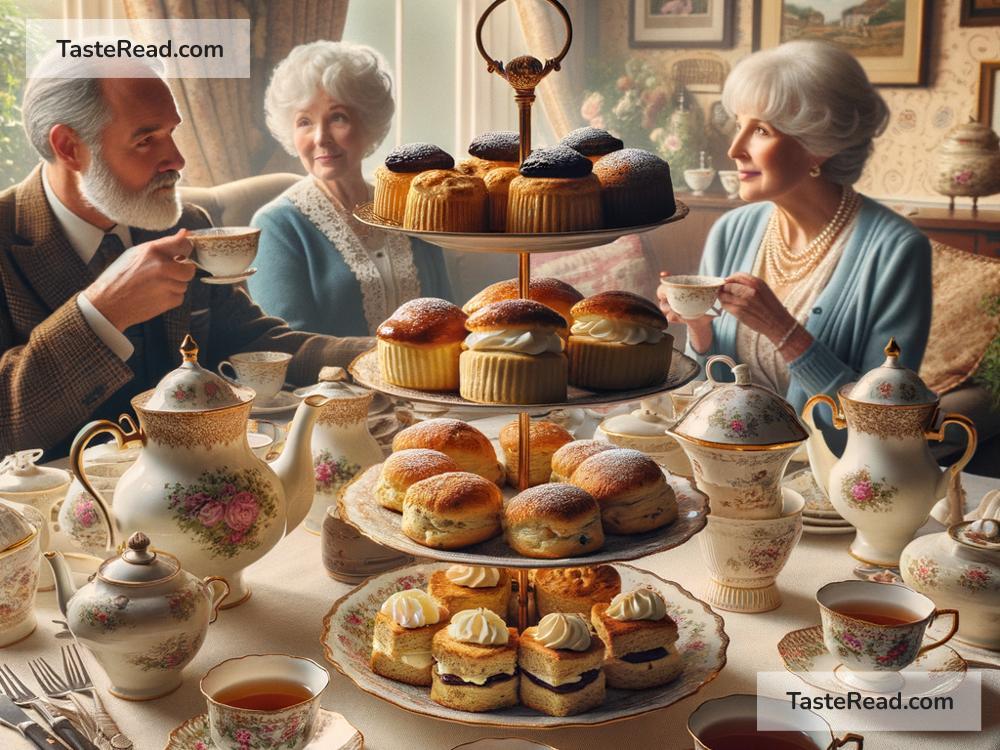The Importance of Tea in British Culture and Afternoon Tea Rituals
Tea is more than just a drink in Britain. It is a symbol of comfort, tradition, and social connection. The British love tea so much that it has become an important part of their daily lives. From a morning cup of tea to calm a busy mind to sharing tea with friends in the afternoon, tea plays a special role in British culture.
But what makes tea so special? Why are the British so fond of this warm beverage? Let’s explore the history of tea in Britain, its cultural significance, and the charming tradition of afternoon tea.
A Brief History of Tea in Britain
Tea first arrived in Britain in the 1600s, brought by Portuguese and Dutch traders. At that time, tea was a luxury item, enjoyed mainly by wealthy people. It wasn’t just a drink—it was a symbol of sophistication. People served tea in fancy porcelain teapots, and it became fashionable to hold tea-drinking gatherings among the upper class.
However, tea slowly became more popular and affordable, especially in the 18th century. This was largely thanks to the British East India Company, which imported huge quantities of tea from China and later India. By the early 1800s, tea drinking was common across all social classes, and its popularity has only grown since then.
Today, tea is considered the national drink of Britain. It is often described as “the fuel of the nation” because of how deeply ingrained it is in daily life. Whether it’s enjoying a quiet moment alone or catching up with a friend, tea brings people together and provides comfort.
Tea as a Social and Cultural Staple
In Britain, tea is more than just a drink—it is an experience. Most British people drink tea every day, and offering someone a cup of tea is seen as an act of hospitality and kindness. If you visit someone’s home in Britain, chances are you’ll be offered a steaming cup of tea soon after you arrive!
Tea is also a way to connect with others. It is deeply intertwined in everyday social interactions. When people need a break at work, they take a “tea break.” If someone is feeling sad or unwell, they are comforted with “a nice cup of tea.” Across the country, tea has also become the centerpiece of family reunions, social gatherings, and, of course, the famous afternoon tea.
Afternoon Tea: A Classic British Ritual
One of the most charming traditions in British culture is afternoon tea. This ritual started in the mid-19th century, thanks to Anna, the Duchess of Bedford. At that time, people typically ate two main meals: breakfast and a late evening dinner. Between these meals, the Duchess often felt hungry. To solve this problem, she introduced the idea of an afternoon snack—tea accompanied by cakes, sandwiches, and biscuits. Soon, she began inviting her friends to join her, and the tradition of afternoon tea was born.
Afternoon tea quickly became popular among the upper class. It was seen as a graceful and elegant social event where people could drink tea, eat delicious treats, and chat with friends. Today, while it is no longer a daily ritual for most people, afternoon tea is still celebrated as a special occasion.
Whether enjoyed at home or in fancy hotels, afternoon tea has a typical format. It usually includes the following:
- Tea: The centerpiece of the event, brewed fresh and often served in beautiful teapots. Earl Grey, Assam, and English Breakfast are popular choices.
- Sandwiches: Small, bite-sized sandwiches with fillings like cucumber, smoked salmon, or egg mayonnaise.
- Scones: A favorite part of afternoon tea, scones are served with clotted cream and jam. There is often debate about which goes on first—the jam or the cream!
- Cakes and Pastries: Afternoon tea would not be complete without sweet treats like sponge cakes, tarts, and shortbread.
In modern times, afternoon tea is also a popular tourist activity. Visitors to Britain often book afternoon tea experiences at famous hotels or tearooms. It’s a delightful way to feel part of British heritage.
What Tea Means to the British
For the British, tea is more than just a beverage—it’s a way to slow down and take a pause in the day. It brings comfort during tough times and adds warmth to joyful moments. Whether it’s a casual cup of tea at home or a refined afternoon tea with friends, tea reflects the importance of community, tradition, and relaxation in British culture.
Next time you make a cup of tea, take a moment to think about its special role in British life. Whether you sip your tea alone or share it with others, this simple act connects you to a tradition that has been loved for centuries.
So, put the kettle on, brew yourself some tea, and enjoy the magic of this timeless drink. Who knows—you might uncover your own little moment of British charm!


